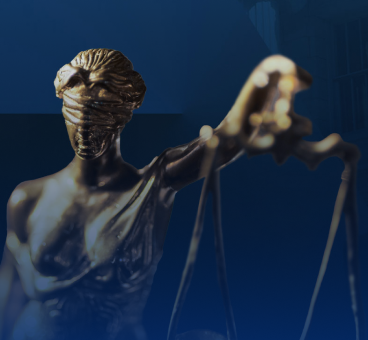Suffering an injury resulting from unsafe conditions on someone’s property may require costly, long-term care that depletes your finances. Regardless of your situation, Massachusetts’ rules for premises liability accidents allow you to seek compensation from the property owner for your losses.
A Massachusetts premises liability lawyer from GED Lawyers can assist you with pursuing compensation from those liable for your accident on another party’s property. First, let us look into the laws affecting your case.
Massachusetts Property Owners Owe a Duty of Care
Like in many US states, individuals and entities throughout Massachusetts have a duty of care to provide safe conditions for their guests, within reason, on any property they own or have jurisdiction over. Failure to do so is negligence on their part. This also means that depending on who currently has control of the property, you can either be up against the owner or their tenant.
If the responsible party cannot remove the dangerous condition, they should warn visitors of the hazard. For example, if a landlord currently has a construction project in their apartment complex, they should ideally block off the area to prevent unauthorized access. If they cannot, they must ensure residents and guests are informed of the hazardous condition, such as through highly visible signage. Failing to uphold this legal duty is what leads to many premises liability accidents.
The Massachusetts premises liability lawyer from GED Lawyers can assist with investigating further into the accident to determine the liable party. We can also help collect proof of negligence, such as surveillance camera footage and witness statements.
How Liability Works in Cases With Trespassers
Massachusetts property owners and tenants are typically not liable for accidents involving trespassers. This is particularly so if the trespasser was uninvited and had no excuse to be on the premises, such as someone about to commit a crime. For example, a burglar cannot pursue a premises liability claim that a homeowner had inadequate lighting at 2 AM.
If the person who was on the property without permission wants to recover damages, they must prove the liable party created the hazard on the premises to harm others. Typically, the burden of proof is much higher for people on residential or commercial properties illegally.

Types of Dangerous Conditions in Massachusetts
There are countless ways the person responsible for a given property can neglect the safety of the public. This can be on public property, private property, or even residential property.
Here are a few of the more common types of scenarios that lead to the risk of injury:
- Wet floors
- Icy parking lots
- Swimming pool accidents
- Unsecured building materials
- Dog bites or dangerous pets
- Negligent security at a public venue
When you are injured by someone else’s negligence, you deserve fair compensation from the at-fault party.

What Actions Can You Take for Compensation?
The following are the different legal avenues one can take when pursuing compensation from a negligent party:
Liability Claims
Massachusetts does not require liability coverage for businesses and homeowners. However, they may still opt for this in their insurance policy to protect them from directly compensating victims if they are liable for accidents on their property.
Your premises liability lawyer can help you file your claim with the liability insurance provider. If you do not accept the first settlement offer from the insurance company, your attorney can also negotiate on your behalf for a fairer amount.
Premises Liability Lawsuits
There are instances where a claim will not work, such as when the Massachusetts property owner does not have liability coverage. In such cases, you would have to take matters to court instead. Insurance policy limits do not restrict the civil court, so your settlement amount in a lawsuit can very well exceed them should the case go favorably for you.
However, it can take longer to reach a verdict if your case needs multiple proceedings. Fortunately, your premises liability attorney can represent you for the whole duration. You can bring your lawsuit to the county courthouse that presides over the area where you suffered the accident.
You Could Also Settle Privately
However, the liable party may also propose settling the personal injury lawsuit outside of court. One such method is a process called arbitration, where you can negotiate with the other side while a neutral party mediates. Our premises liability lawyer can also guide and speak for you if you decide to go through this option.

Premises Liability Case Filing Deadlines in Massachusetts
Premises liability cases follow the statute of limitations for personal injury cases as specified in Massachusetts General Laws Ch. 260 Section 2A. This gives you three years from the accident date to build and file your case.
Filing on time is a must to avoid getting your case dismissed automatically. You will want to start working on it while you still have plenty of time left. Doing so can help reduce the risk of missing your deadline. Your premises liability lawyer can also monitor your progress to see if you are on schedule.

Premises Liability Damages in Massachusetts
To determine how much you could recover in a premises liability settlement, our premises liability lawyer can help you estimate your total damages. This involves compiling your expenses and assessing the extent of your injuries. You could recover both economic and non-economic damages.
Some examples of economic damages include:
- Medical expenses, such as hospitalizations for broken bones, surgical procedures for a spinal cord injury, medications for physical pain, continuing medical care, and rehabilitation
- Income lost while injured, future lost income, missed promotions, lost bonuses, and used sick and vacation time
- Replacement services hired, such as housekeeping, childcare, and caregiving
Meanwhile, non-economic damages generally depend on the types of injuries you sustained and the severity of those injuries. For example, permanent paralysis or a traumatic brain injury would likely have a greater value than a dislocated shoulder. The argument is you would have probably suffered more due to your permanent condition.
Some non-economic damages include:
- Disabilities
- Disfigurements
- Chronic pain
- Mental anguish
- Emotional distress
Massachusetts’ Comparative Fault Laws Still Apply
Like other personal injury case types, premises liability actions in Massachusetts still follow the state’s comparative negligence rules in Massachusetts General Laws Ch. 231 Section 85. The law states you may only recover a partial amount of the total settlement if you are partly responsible for your injury. You also cannot recover anything if you are more liable than the party you file against.
For example, let us say you suffered a slip and fall accident due to a shop’s broken steps. Evidence reveals the shop had a defective stairway for a long enough time that they should have addressed the problem already. However, you were walking briskly at the time, increasing your risk of tripping. The jury then decides you are 20 percent liable, which means you may only recover 80 percent of the settlement value.
The other party can use weak points in your claim against you, so it would be safer to have a premises liability lawyer review everything before filing. Then, they can watch out for discrepancies and see that you can support your claim effectively.
A Premises Liability Lawyer in MA Wants to Advocate for You
If you were injured in an accident due to the improper maintenance of someone’s establishment or property here in Massachusetts, consider consulting first with our Massachusetts premises liability lawyer from GED Lawyers. Our experienced premises liability lawyers have served injury clients throughout the state since 1995 and can use their decades’ worth of legal knowledge to assist with your personal injury claim.
You can get started today by calling for a free consultation. A team member will listen to the details of your case and determine your best course of action.
